La deuda de préstamos estudiantiles acaba de alcanzar un máximo histórico de $ 1.465 billones. Eso es el doble de la deuda de préstamo de $ 675 mil millones acumulada en junio de 2009, según un informe reciente de Bloomberg. Con más de 44.5 millones de personas en algún tipo de deuda de préstamos estudiantiles, se está convirtiendo cada vez más en parte de las plataformas de los responsables políticos progresistas de alto perfil.
La conversación nacional ha avanzado mucho en los años desde que los activistas comenzaron a impulsar el tema de la deuda estudiantil durante la recesión de 2008. Ahora, el representante entrante, Alexandria Ocasio-Cortez se pronuncia sobre la idea de la cancelación de la deuda de préstamos estudiantiles y el senador Bernie Sanders habló sobre la posibilidad de que las universidades públicas no cobren matrícula durante su campaña presidencial.
«Al principio nos consideraban totalmente poco serios en cuanto a cómo funciona el mundo», dijo Ann Larson, cofundadora de la organización Debt Collective. «Sin embargo, menos de una década después, tenemos a Bernie Sanders, algunos posibles candidatos presidenciales, legisladores, legisladores, académicos y otros que hablan sobre esto».
El Colectivo de Deuda es la iteración más reciente de algunas iniciativas de base dirigidas a enfrentar la deuda. La red de Strike Debt intentó movilizar a los prestatarios para que incurrieran en impago para exigir la reforma de los préstamos estudiantiles, mientras que Rolling Jubilee utilizó $ 701,317 en donaciones para comprar y cancelar $ 31,982,455 de la deuda de préstamos estudiantiles. Hoy en día, la organización se centra en cancelar todo tipo de deudas mediante la colectivización de los intereses de los prestatarios individuales.
«Las agencias de acreedores, cobranzas y préstamos están increíblemente organizadas en sus intereses, pero las personas endeudadas no tienen ningún tipo de respaldo institucional», dijo Larson. «Los deudores necesitan una fundación, organización e institución basadas en membresía para que participen de una manera muy real para defender sus intereses y brindarles alivio al mismo tiempo».
Las protecciones para los prestatarios de préstamos estudiantiles, especialmente en términos de préstamos privados para estudiantes, son casi inexistentes. Los prestatarios deben lidiar con requisitos de préstamos poco claros y prácticas de pago turbias. El mayor prestamista de préstamos estudiantiles de la nación, por ejemplo, engañó a los prestatarios en los términos de su reembolso, lo que dio como resultado incrementos ilegales en el saldo del capital al asignar los pagos al interés en lugar del préstamo principal. Los prestatarios están luchando contra una industria basada en hacer dinero de su deuda.
El gobierno de Obama intentó aumentar la responsabilidad de los prestatarios, incluida la creación de la Oficina para Estudiantes y Jóvenes Prestatarios bajo la Oficina de Protección Financiera del Consumidor. La oficina persiguió activamente el castigo exigible para los servicios de préstamos que privan de sus derechos a los prestatarios intencionalmente, y demandó a CitiBank y Navient por estafar a los prestatarios . Sin embargo, la Oficina fue cerrada en mayo de 2018 por Mick Mulvaney, quien en ese momento era el director interino del CFPB.
Organizaciones como Student Debt Crisis tienen su origen en la creación de alivio inmediato específicamente para los prestatarios de préstamos estudiantiles. Educan a los prestatarios sobre cómo minimizar los préstamos, proporcionan una comunidad digital para aquellos que luchan con el reembolso y trabajan en políticas estatales en todo el país para cancelar parcial o completamente la deuda de préstamos estudiantiles.
Cody Hounanian, el director del programa de Student Debt Crisis, dijo que la reforma progresiva de los préstamos estudiantiles requiere un enfoque holístico de los impactos de la deuda estudiantil, incluida la observación de la desigualdad existente que determina quiénes son los más afectados.
«La deuda de los estudiantes amplifica la desigualdad sistémica a largo plazo», dijo Hounanian. “Los estudiantes de color asisten a universidades depredadoras con fines de lucro a tasas más altas y incumplen con mayor frecuencia sus préstamos estudiantiles. Las mujeres enfrentan períodos de pago más largos y pagan más con el tiempo debido a la brecha salarial «.
La educación universitaria se promociona frecuentemente como un medio para lograr una mayor movilidad económica y social, especialmente para las personas dentro de grupos marginados. Sin embargo, la creciente deuda de préstamos estudiantiles refuerza las barreras socioeconómicas existentes y limita la acumulación de riqueza para muchos graduados.
Higher Ed, Not Debt esperaba llevar estos temas al debate nacional cuando se fundó hace unos cuatro años. La coalición con sede en DC conecta a más de cincuenta organizaciones en todo el país para impulsar el trabajo de base directamente en la política nacional.
El grupo quería que los candidatos presidenciales progresivos usaran la deuda de préstamos estudiantiles como un tema para movilizarse, como lo harían con la atención médica, dice Charlotte Hancock. Hancock es el director de comunicaciones de Generation Progress, que alberga Higher Ed, Not Debt. Ahora que es un tema cada vez más en el radar progresivo, la coalición está enfocada en crear soluciones tangibles para los prestatarios.
Gracias a la elección de Donald Trump en 2016 y un Departamento de Educación cada vez más hostil, Higher Ed, Not Debt está buscando soluciones centradas en el estado como The Borrowers Bills of Rights . Una legislación como esta protegería a los prestatarios de las prácticas de préstamos predatorios, algo que Hancock dijo que es especialmente útil para los prestatarios que tienen préstamos privados para estudiantes.
«El sistema de préstamos federales no es perfecto», dijo Hancock, «pero hay al menos protecciones en los sistemas federales de préstamos estudiantiles que no existen en los préstamos privados para estudiantes». A diferencia de otras formas de deuda, la deuda de préstamos estudiantiles no se puede cancelar. La bancarrota y algunos préstamos pueden incluso pasar a otro miembro de una familia si el estudiante que incurrió en la deuda fallece.
Luego está el tema de las universidades depredadoras con fines de lucro, que se pusieron a la vanguardia en el caso de alto perfil del ahora extinto Colegio Corintio . Los prestatarios tienen derechos limitados, incluso cuando son víctimas de fraude, y el Departamento de Educación actual bajo Betsy DeVos ha hecho retroceder a las ya escasas regulaciones que protegían sus intereses.
Un ejemplo de la crueldad que gobierna las políticas de préstamos estudiantiles: el Departamento de Educación de DeVos ha aprobado el perdón de préstamos para solo 206 de los 41,000 prestatarios que solicitaron el perdón de préstamos de servicio público. Los obstáculos innecesarios y la burocracia dejaron a los prestatarios, que pasaron una década trabajando en carreras de servicio público mientras pagaban sus pagos de préstamos, en el frío. La tasa de denegación del 99 por ciento muestra que incluso las políticas bienintencionadas tienen el poder de perjudicar gravemente a los prestatarios, por lo tanto, el impulso para abordar de manera integral el problema de la deuda estudiantil.
«El hecho de que tuviéramos deudas estudiantiles, especialmente en el nivel que tenemos, es un error de política cometido hace unas décadas», dijo Larson. «Debemos corregir el error y devolver la educación como un estado del bien público y no solo un bien que tiene que comprar».
Fuente; https://truthout.org/articles/how-activists-are-moving-the-dial-on-student-loan-debt/
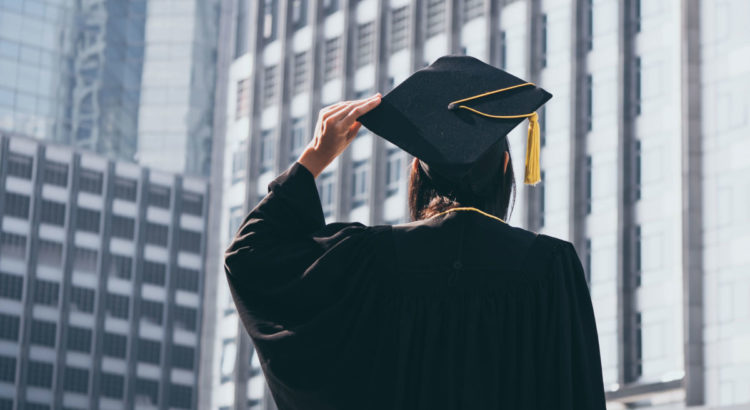
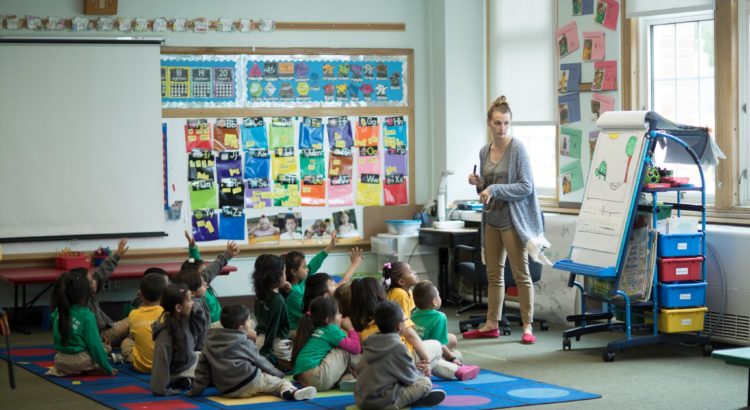
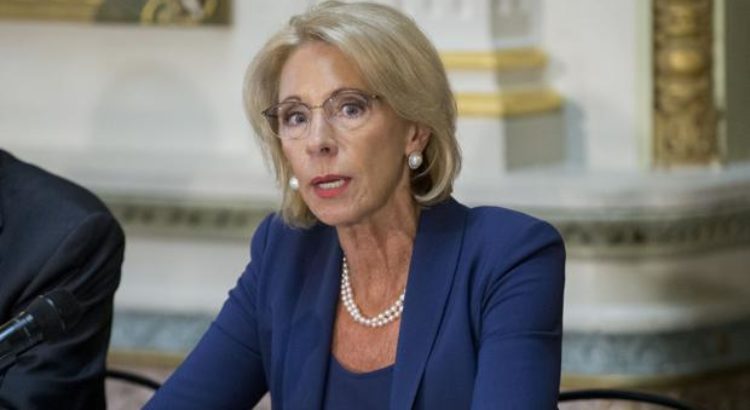
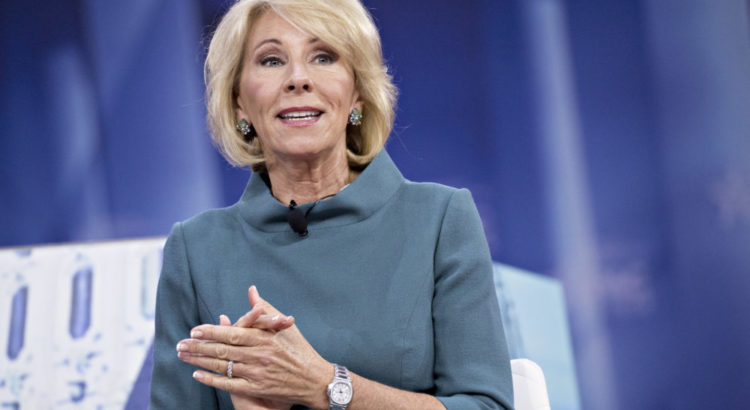
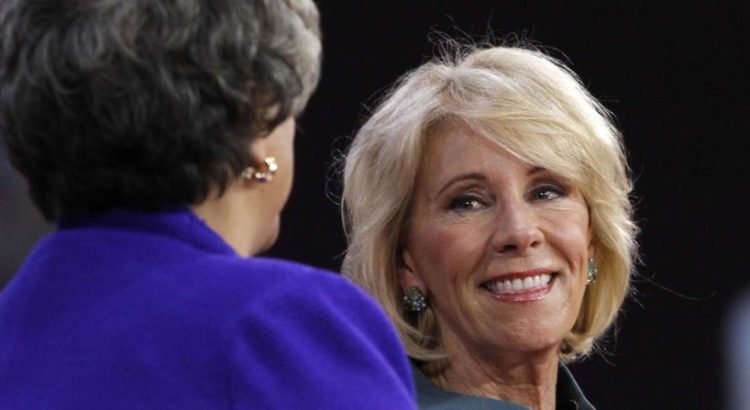

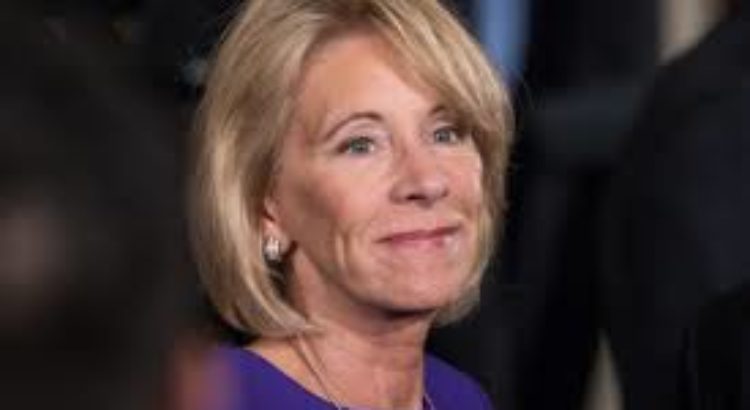






 Users Today : 9
Users Today : 9 Total Users : 35460362
Total Users : 35460362 Views Today : 12
Views Today : 12 Total views : 3419112
Total views : 3419112